Transforming Social Services: Innovation, Evaluation, Impact
More than 150 participants attended the Social Service Research Centre's (SSR) inaugural conference and launch. Senior Minister Goh Chok Tong, advisor to the SSR, delivered the keynote address for the launch. He highlighted the importance of evolving more effective services and social innovations to cope with the “social climate change”.
This was a central theme in the presentations that followed: how can we translate research into action, and conduct program evaluation that will impact both policy and clients? Our speakers stressed the need to have the right motivation when evaluating a program. The purpose of a program evaluation is not only to ask whether a program worked, but more importantly why it worked or why it did not work. This is especially important when a program does not achieve the same level of effectiveness as expected. When this occurs, it is critical for leaders of organizations to provide a safe and constructive environment for agency staff to use their insights from the evaluation exercise to fine-tune the program and try again.
The conference concluded with a dialogue session with Mr. Phillip Tan, Vice President of NCSS, Chairman of Community Chest and Chairman of the Care & Share Steering Committee. He voiced his belief that collaboration would improve the evaluation process. He reiterated that NCSS would continue to support programs even if evaluation results were unfavourable, and would work together with agencies to help improve these programs. The SSR is similarly committed to working with policymakers and practitioners to develop a new research culture in social services.
Date: 24th April 2015, Friday
Time: 8.30am to 5.30pm
Venue: Kent Ridge Guild House, NUSS, 9 Kent Ridge Drive, Singapore 119241
Room: Guild Hall
Program
Social services hold the key to altering the well-being trajectory of those in need of care and protection. In an age where social needs are increasing faster than public budgets, the success and effectiveness of social services have become more important than ever. How can we maximize the benefits from available public budgets, infrastructure and human capital to improve the outcomes of those in need?
Evaluating policies is the first step towards a better understanding of resource allocation. In recent years, social researchers and practitioners have made tremendous progress in applying high levels of scientific rigor to the evaluation of social policies. It is hence timely to review the developments and findings from these evaluation studies.
The conference will gather international and local academics and practitioners to share their experience on overcoming challenges in social service evaluations as well as their views on how social services evaluation will aid in the development and shaping of future social innovations.
Through providing a platform for research and field knowledge sharing, the conference will bridge the understanding between researchers and practitioners with the hope of facilitating future research partnerships.
| Time | Program |
|---|---|
| 9:00am | Registration |
| 9:30am | Arrival of Guest-of-Honour and Advisor to SSR Emeritus Senior Minister Goh Chok Tong |
| 9:35am | Welcome and Introduction of SSR Professor Paul Cheung, Chairman of Steering Committee, SSR, NUS |
| 9:40am | Opening Remarks by NUS Provost Professor Tan Eng Chye, Deputy President (Academic Affairs) and Provost, NUS |
| 9:50am | Keynote Speech by Guest-of-Honour and Advisor to SSR Emeritus Senior Minister Goh Chok Tong |
| 10:00am | Official Launch of SSR and Photo Taking |
| Break | |
| 10:45am | Plenary Session I Making an Impact: Rigorous Evaluations in Partnership Testing Social Welfare Innovations with Randomized Control Trials Working with Government Departments to Develop Robust Evidence Facilitated by: |
| 11:50am | Programme Evaluation: Local Practices and Training Needs Dr Chu Chi Meng, Senior Assistant Director & Principal Clinical and Forensic Psychologist, Ministry of Social and Family Development Methodological Issues and Practical Considerations in Social Service Program Evaluation Facilitated by: |
| 12:55pm | Lunch |
| 2:00pm | Plenary Session II Meeting New challenges: Social Innovation and Evaluation Integrating Rigorous Evaluation with Policy Innovation Supporting Innovation and Implementation of an Evidence-Based Practice: Lessons Learned Facilitated by: |
| 3:05pm | Panel Discussion on Singapore Innovations
The Family Development Programme (FDP) for Low-Income Families: Efforts of a VWO towards evidence-based practice Evaluation of Self Care Program on the Health of Older People in Singapore Strategic Research Partnerships of Social Service Research Centre (SSR) Facilitated by: |
| 4:10pm | Break |
| 4:40pm | Dialogue Session with Mr. Phillip Tan, Chairman of Community Chest, Singapore Transforming Social Services in Singapore: Challenges and Promises Facilitated by: |
| 5:30pm | Closing Remarks |
Speakers
DR JAMES RICCIO

Testing Social Welfare Innovations with Randomized Control Trials Testing Social Welfare Innovations with Randomized Control Trials
This presentation will discuss the growing role of evidence in social welfare policymaking in the United States. It will also illustrate one process for designing and testing innovative policies with an example of an ambitious pilot project that sought to reduce two-generation poverty in New York City. Called Opportunity NYC—Family Rewards, the project offered monetary rewards tied to children’s educational achievements, family preventive health care activities, and parents’ employment. The project was overseen by the city government, but funded, operated, and evaluated by private agencies. The effectiveness of the intervention is being assessed with a random assignment experiment. The presentation will discuss the latest results from the evaluation and their implications for policy.
DR RICHARD DORSETT

Dr Richard Dorsett is Director of Policy Evaluation at the National Institute of Economic and Social Research in London. He specialises in the fields of welfare, employment and education/training. His experience covers both large-scale government evaluations and smaller-scale studies. His particular expertise is in impact analysis and he has led numerous projects using both experimental and non-experimental techniques.
Current evaluations include the Work Programme (the main UK back-to-work service) for the UK Department for Work and Pensions; technology in adult learning (a randomised control trial assigning learners to either traditional or blended learning) for the UK Department for Business Innovation and Skills, BIS); Traineeships (a voluntary scheme to improve the employability of young people with skills below the level required for an apprenticeship) for BIS; a support scheme for released prisoners (the results of which will be used to calculate payment due to investors in a social impact bond) for the UK Ministry of Justice. He is also part of a World Bank led team designing a survey of nationals, ex-pats and employers in Saudi Arabia. He has previously acted as Specialist Adviser to the UK House of Commons Work and Pensions Committee. He has a PhD in economics from the University of Manchester.
Working with Government Departments to Develop Robust Evidence
This presentation will focus on the nature of partnership working between research organisations and government departments in the UK. It will describe evolving attitudes to evidence and discuss arrangements that have been put in place to encourage productive relationships. With a particular focus on randomised control trials, it will describe how evaluation opportunities can be built into the policy process and will offer some thoughts on how to achieve high-quality yet affordable evidence of what works. A number of recent labour market evaluations will be presented as examples of these points.
DR CHU CHI MENG
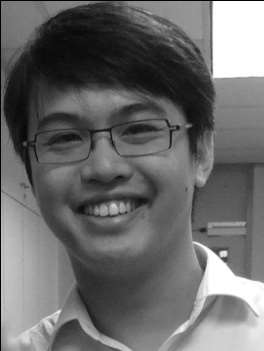
Dr. Chu Chi Meng is a registered psychologist in Australia and Singapore, and also an Associate Fellow, Chartered Psychologist, and Chartered Scientist of the British Psychological Society. Dr. Chu is currently the Principal Clinical and Forensic Psychologist at the Clinical and Forensic Psychology Branch, Ministry of Social and Family Development (MSF). He concurrently heads the Centre for Research on Rehabilitation and Protection (MSF) as a Senior Assistant Director. In addition, Dr. Chu is an Adjunct Assistant Professor with the Department of Psychology, National University of Singapore.
There is increasing awareness within the public and social service sector about programme evaluation in the past decade within the local context. With limited resources, agencies across the sectors are increasingly required to justify the funding for their programmes through proper evaluation of outcomes and processes. This presentation will describe the programme evaluation efforts at the Ministry of Social and Family Development. In addition, the preliminary findings from a survey on evaluation activities and training needs will also be presented. Future directions with regard to programme evaluation will be discussed.
DR CHOO HYEKYUNG
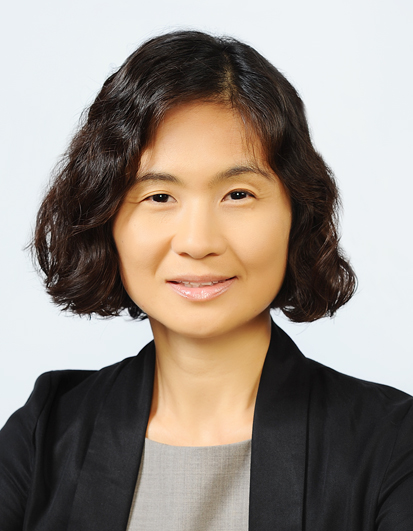
Dr Hyekyung Choo is an assistant professor at the Department of Social Work, National University of Singapore. She received her PhD from University of Pennsylvania and her MSW from Temple University. Her research areas cover adolescents’ health risk behaviours and video-gaming addiction and social service program evaluation. She has undertaken two large scales surveys on Singapore adolescents’ health risk behaviours and video-gaming, and is currently conducting evaluation research on an intervention program for adolescents’ video-gaming addiction. Her recent publications include “Pathological video-gaming among Singaporean youth: A two year longitudinal study” co-authored and published in Paediatrics (2011), "Pathological video-gaming among Singaporean youth” in Annals Academy Of Medicine, Singapore (2010) which received Silver Award for Best Publications of the Journal in 2010 together with her co-authors, and “Health risk behaviours of foreign-born adolescents in Singapore: Exploration of risk factors in an Asian context” in British Journal Of Social Work (2010) with her colleague.
Methodological Issues and Practical Considerations in Social Service Program Evaluation
Evaluation of the effectiveness of a social service program is often encountered by various methodological challenges and practical constraints in the process of its implementation. While a range of common issues arising from program evaluation has been identified by many evaluation researchers and practitioners, how to address them is hardly discussed. Based on firsthand knowledge of conducting evaluation studies in direct social service settings, this presentation delineates those common issues and challenges laid in different segments of program evaluation (intervention, outcome, control/comparison group, sample, and timeline), and discusses some points for consideration and potential alternatives to rigorous yet infeasible evaluation designs.
MR. HÉCTOR SALAZAR SALAME

Mr. Héctor Salazar Salame joined J-PAL SEA in August 2012. As Executive Director, he is developing the regional office’s portfolio of projects and growing its institutional presence in Indonesia and the Southeast Asia region. In the years prior to joining J-PAL, Héctor held positions in the New York City Office of the Mayor as well as with international and local NGOs working in Latin America and Indonesia. During this time, he researched, designed and managed initiatives in the fields of poverty reduction, election observation, labour rights advocacy and community participation. Héctor holds a Masters degree in City Planning from MIT (2011) with a focus on Political Economy and an Undergraduate degree in International Affairs from James Madison University (2004). Originally from Mexico, Héctor is natively fluent in Spanish and English. He is also proficient in Bahasa Indonesia.
Integrating Rigorous Evaluation with Policy Innovation
In Indonesia there is an increasing interest in and demand for evidence-based policy innovation, as well as a push to reform existing social protection programs. With this opportunity also comes the challenge of being able to identify and respond quickly to demands for rigorous evidence to inform policy-making. This presentation will discuss J-PAL SEA's approach to engagement with government agencies and other key stakeholders in Indonesia to rigorously test policy innovations and reforms. The presentation will also highlight examples of how J-PAL SEA has collaborated with the Government to integrate rigorous evaluations into the policy-making process, including a recent RCT on Indonesia's subsidized rice program (Raskin) that informed national level policy changes reaching over 15.5 million poor households.
PROFESSOR MARY C. RUFFOLO

Professor Mary Ruffolo’s research focuses on organizational factors that influence sustaining evidence based interventions/programs in community mental health settings, adapting efficacious interventions for children and youth experiencing serious mental health challenges, and addressing ways to disseminate interventions with at-risk populations (e.g., families of children with serious mental illness, adults with severe mental illness). She is involved in evaluating initiatives focusing on integrating behavioral health and primary care. She is committed to research that addresses the needs of vulnerable populations served by the health and behavioral health public systems.
As director of the continuing education program, she is facilitating the instructional technology initiatives within the school to better meet the needs of students and professionals. Her efforts focus on the development of courses and interdisciplinary web-based certificates using a range of digital and web-based instructional technologies to enhance learning.
Supporting Innovation and Implementation of an Evidence-Based Practice: Lessons Learned
Many evidence-based interventions/innovations fail to translate into routine care for adults and youth experiencing significant mental health disorders. Moving the evidence-based intervention from the controlled research settings to the broader mental health systems is an ongoing challenge for administrators and practitioners in the mental health delivery network. Using the Family Psychoeducation evidence-based practice, as an example, this presentation will examine the challenges and lessons learned from implementing this evidence-based practice into routine care in the public mental health system. This presentation will also explore the key sustainability issues once the implementation phase is over.Building organizational infrastructures supports will be highlighted.
MRS CINDY NG-TAY

Mrs Cindy Ng-Tay is the Assistant Director of Methodist Welfare Services - Covenant Family Service Centre. She received her Bachelor of Social Sciences (Honours) and Master of Social Sciences (Social Work) from the National University of Singapore.
Cindy is a registered social worker and works with low income families and families experiencing violence and abuse. Over the years, she has developed, executed and evaluated programmes that help low income families cope with the stresses they experience in their lives. She has also engaged in community work in Hougang and works closely with a team of social workers in engaging the vulnerable groups in their service boundary.
Cindy is passionate about issues relating to poverty, income inequality and social mobility. She believes in developing evidence-based intervention in social work practice.
The Family Development Programme (FDP) For Low Income Families: Efforts of a Voluntary Welfare Organisation (VWO) Towards Evidence Based Practice
Individuals in a culture of poverty produce little income and accumulate little wealth. It is no surprise that the poor carries with them more risk factors which may render them susceptible to greater poverty and unable to move up the social ladder. The poor in Singapore are found to be burdened with debts and very little savings. 90% of the families in the FDP has less than $100 in their savings accounts and have a median household debt of $2,000 to $3,000. In the face of overwhelming debts, insufficient income and little savings, the poor is paralyzed by their financial difficulties and unmotivated to think about how they can improve their financial situation.
The FDP, a 12 month programme, aims to help families increase their nett worth through the reduction of debts. The programme also aims to increase their sense of mastery over their financial difficulties. 80 families who are struggling with debts were recruited in March 2014 and randomly assigned to an intervention group or a control group. Participants in the intervention group receive financial coaching of up to 10 hours across the 12 months and have their payment of debt matched dollar for dollar up to a cap of $100 per month.
This presentation discusses the profile of the families in the FDP, the evaluation design adopted and the impact of the programme on the low income families.
MS SUSANA HARDING
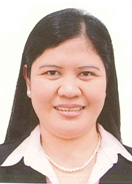
Ms Susana is the Director of the International Longevity Centre Singapore, an initiative of the Tsao Foundation – a Singapore based but regionally oriented not-for profit operational foundation dedicated to aged care and ageing issues. Susana provides overall direction and leadership to the foundation’s research and policy advocacy initiatives and she develops new programmes that support active ageing and enhance our elders’ participation in the community.
Susana has been working with the Tsao Foundation for 13 years and prior to this, she had 15 years of experience in community development and non-profit sector. She graduated with a Bachelor of Arts degree in Economics from Santo Tomas University, Philipines and a Master in Public Administration from the Lee Kuan Yew School of Public Policy at the National University of Singapore.
Evaluation of Self Care Program on the Health of Older People in Singapore
The SCOPE Program is a community development intervention that aimed at building the knowledge, skills and attitude of older Singaporeans to practice self-care and manage chronic diseases better, with the long-term goal of helping sustain good functional status and quality of life. The program also aimed to build a support system among cohorts and empower older persons to continue on taking good care of each other even beyond the program’s duration. This is the first health education and health promotion programme that targeted community dwelling older people.
The pilot programme was implemented from June 2011 until January 2014. This program was evaluated using RCT by a research team, led by A/P Angelique Chan, from FASS, NUS and Duke-NUS.
A/P IRENE Y.H NG
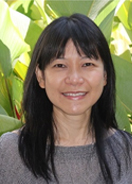
A/P Irene Y.H. Ng is an Associate Professor of Social Work in the National University of Singapore, and Director of the Social Service Research Centre. She holds a joint Ph.D. in Social Work and Economics from the University of Michigan. Her research areas include poverty and inequality, intergenerational mobility, youth crime, and social welfare policy. She is Principal Investigator of an evaluation of a national Work Support programme and Co-Principal Investigator of National Youth Surveys 2010 and 2013. She is engaged in various committees, for instance in the National Youth Council, the Chinese Development Assistance Council, Ministry of Social and Family Development, National Council of Social Service and Ministry of Manpower. Her teaching areas include poverty, policy, youth work, and programme planning.
Strategic Research Partnerships of Social Service Research Centre (SSR)
This presentation rounds up the conference with a description of some of the strategic research partnerships that SSR has developed since its inception. These include evaluations of pilot programs by the Ministry of Social and Family Development (MSF), a large-scale evaluation of debt management programmes, and an environmental scan of transnational families. The partnerships illustrate the possibilities for academic-practice and academic-policy research collaborations that are meaningful, practical and rigorous. In offering learning points from forging such partnerships, the presentation also highlights SSR’s strategic focus on projects of longer term significance. Projects in the pipeline will bear the imprint of SSR’s vision and research standard.
MR PHILLIP TAN
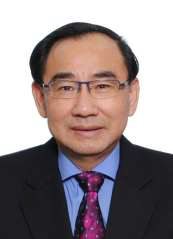
Mr Phillip is currently the Vice President of NCSS, Chairman of Community Chest and Chairman of the Care & Share Steering Committee. He has served in NCSS and Community Chest in various capacities since 1983 and has been involved with a number of Social Service Charitable Organisations in Singapore for the last 30 years. The organisations which he has been involved in include Apex Club of Singapore, Tsao Foundation, Yellow Ribbon Fund, Mount Alvernia Hospital and Thye Hua Kuan Moral Charities Ltd.
With his background of a professional accountant, he had contributed and advised on the governance and accountability of a number of nonprofit organisations.
PROFESSOR PAUL CHEUNG
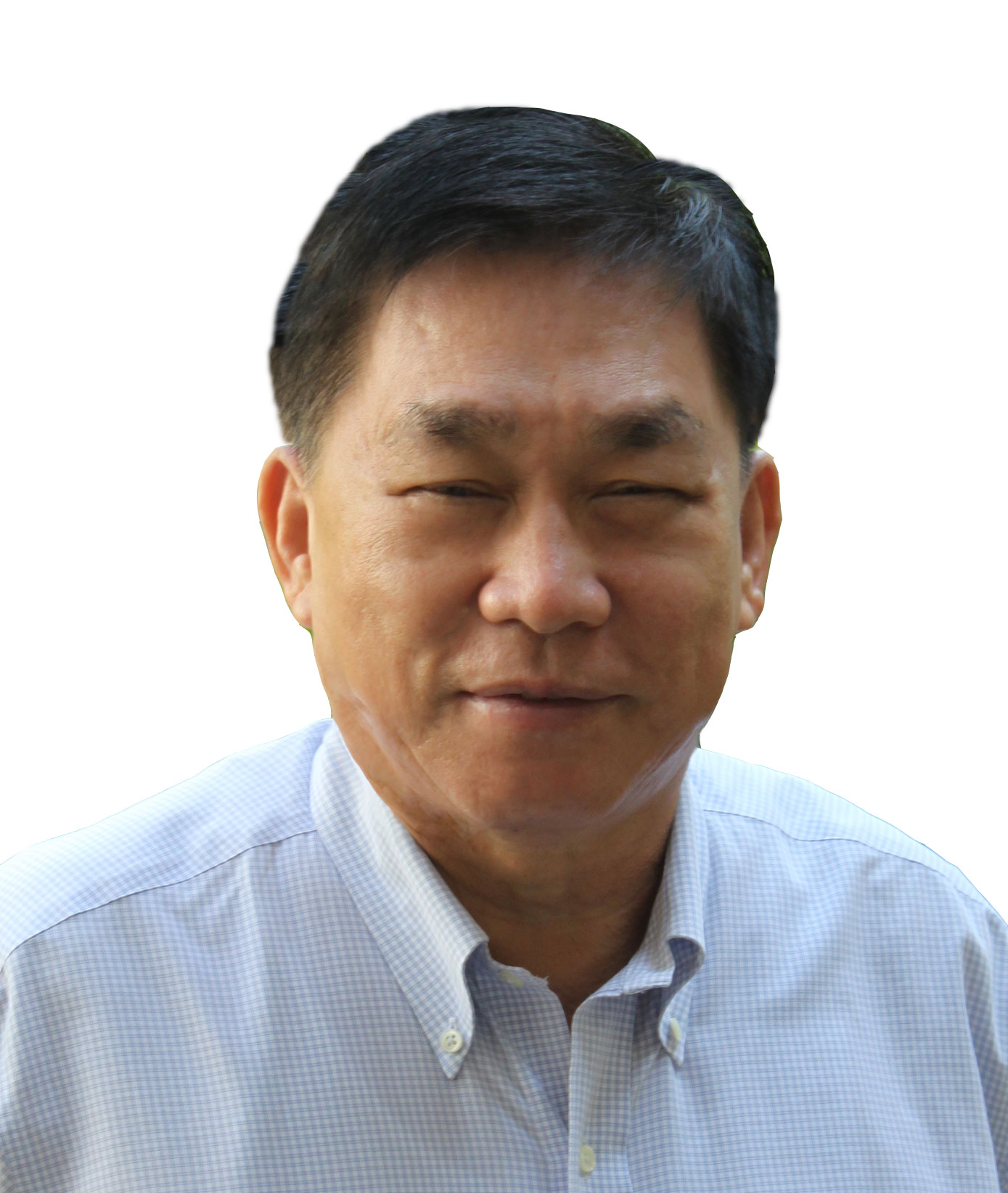
Professor Paul Cheung is currently a professor of social policy and analytics at the National University of Singapore (NUS). He joined NUS in 2013 after serving as the Director of United Nations Statistics Division (UNSD) and the Secretariat of the UN Committee on Global Geospatial Information Management (UN-GGIM) for 9 years (2004-2012). At the UN, he facilitated the development of the global statistical system and coordinated the work of the United Nations Statistical Commission. He also managed a diverse programme of work implementing UN mandates on global geospatial information, cartography, and geographic names. His initiative to establish the UN-GGIM was endorsed by ECOSOC in 2011. Prior to joining the UN, he was the Chief Statistician of Singapore from 1991-2004, managing and coordinating the national statistical system of Singapore. He was awarded in 2001 the Public Administration Gold Medal by the Government of Singapore for his leadership in modernizing Singapore’s census and statistical systems. He has received awards and medals from governments, universities and international organizations. He is now senior advisor to a number of countries on national planning and statistical systems. He is also the Chair of International Steering Committee on Global Mapping. His current research project focuses on evolving the next generation of global information infrastructure, integrating ‘big data’, official statistics and geospatial information for decision support.
He was awarded in 2001 the Public Administration Gold Medal by the Government of Singapore for his leadership in modernizing Singapore’s census and statistical systems. He has received awards and medals from governments, universities and international organizations. He is now senior advisor to a number of countries on national planning and statistical systems. He is also the Chair of International Steering Committee on Global Mapping. His current research project focuses on evolving the next generation of global information infrastructure, integrating ‘big data’, official statistics and geospatial information for decision support.
Date
Time
Venue
Room: Guild Hall

